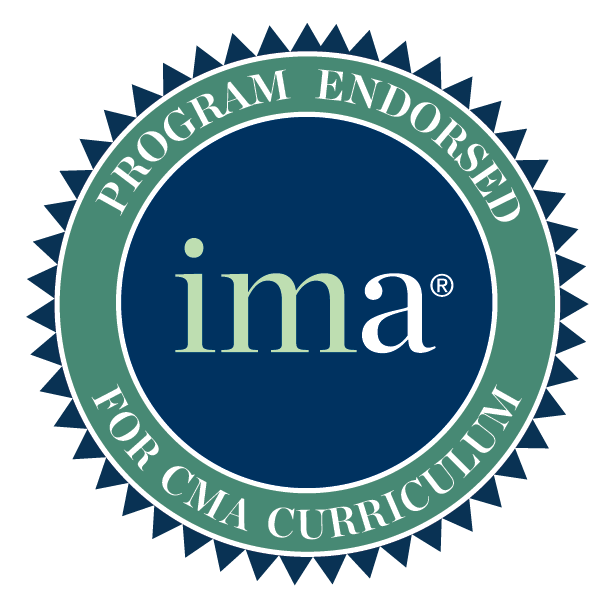Department of Accounting
Accounting is a growing field, as 75% of current CPAs are retirement age. Anderson’s Accounting Department, double-accredited by the Association to Advance Collegiate Schools of Business, ensures that you’ll be ready to tackle the complexities of today’s organizational needs. Offering BBA and Master of Accounting, the department also provides online certificates and class options.
Our faculty members have a strong track record of creating partnerships with local and national firms that increase your success in the job market and enhance your college experience. Our rigorous curriculum provides direct hands-on experience through these partnerships. Combining these experiential learning opportunities with cutting-edge accounting principles and techniques, you will develop your critical thinking, team building and information technology skills.
Accolades

Double accredited by AACSB, through the business school and for the accounting program. Only 194 institutions in the world hold this distinction.

The program is endorsed by the Institute of Management Accountants.

One of 67 schools worldwide, 30 in the U.S., that qualified for the Internal Audit Awareness Program.
Faculty Spotlight - Craig White
Transcript
My name is Craig White. I'm a professor of accounting here at the Anderson School of Management.
The purpose of graduate certificates is to really meet students where they are at in their education, and also with their career objectives. A certificate is a condensed form or the classes within the certificate are a condensed form of the classes that are going to be targeted towards specific topics. So say a student is out working in their career, say in accounting, and they find the need that they want to learn more about tax research and compliance and, you know, corporate taxation. Well, if that becomes relevant, at that point in time, they can enter our certificate program, take 8-week segments and do those all online. You don't have to do them all at the same time with each other. You can take one on an as-needed basis; you can take one this year, one next year.
It could also be students who are going straight through a BBA, and maybe they want to find out a little bit about accounting and tax. They can take one or two classes and that gives them a pathway either to go fully into our master's of accounting program, say with a tax concentration, or have the certificate if they don't want to go into that level at that point. Maybe they want to come back later.
So there are a lot of different objectives and reasons why someone would do this. It kind of fits that mold right now of more real-time learning, picking up skills as you need them to meet your career objectives, where you're at that point in your career. There are a lot of different ways you can do this and it's all about flexibility, it's about real-time learning, it's about using education and working with the community to help people achieve their career objectives.
Faculty Research Spotlight - Jonathan Jona
Transcript
My name is Jonathan Jonah. I'm an assistant professor for accounting. I've been in Anderson for one and a half years now and it's great being here.
I enjoy lecturing about everything in accounting and I think that accounting is a great subject and important at all levels.
My research interests are looking at emerging risks and the way that companies report about them. By emerging risks, it's not really the sense that they are new, but what we understand about them is new. One of my papers is the first paper in accounting that tried to measure climate risk at the firm level using company disclosures. I used that to assess the firm's level exposure to climate risk.
Obviously, climate risk is very different across different companies in different places. So companies need to report to the market about these levels of risks and their exposure to the different types of climate risk. The way that companies report on it matters to the valuation of the company, to the pricing of the company.
Another risk that my paper is one of the first papers to look at is cybersecurity risk. So again, we look at the amount and the relevance of disclosure on cybersecurity, and we try to look at whether this can serve as a proxy for the actual level of climate risk that the company faces.
Surprisingly, or maybe not, these two risks operate completely the opposite. We find that companies that report more on climate risk are actually more exposed to climate risk, or at least the market believes they are, and we can see that by the lower prices that they have. Companies that report more cybersecurity actually have higher valuation, which seems that the market appreciates more disclosure on cybersecurity. We try to think why that would be the case, and the best reason we found is that cybersecurity is something that we can actually do something about, easier and less costly, right? We bring awareness to individuals. As a professor, I get emails from the IT department, telling me how to behave, how to be cyber-conscious, and how not to introduce viruses and so forth to the system of the university. The same operates in companies, so we have training of individuals, of employees. While climate risk is something that is harder to mitigate for; for companies, it's very costly to invest in different mitigation strategies to reduce climate risk and they cannot easily move to another country or state.
Faculty Spotlight - Angela Ekofo
Transcript
I am Dr. Angela Ekofo. I am an adjunct professor here at the Anderson School of Management at the University of New Mexico at the Accounting Department. I have been teaching here on and off for 17 years since 2006 continuously without a break since 2018, for five years straight.
I love lecturing on the management 502 Financial Accounting and Analysis because it is an introductory graduate course of accounting. I have a passion for accounting and I also have a passion for teaching. I find it to be a great honor and privilege to be the one that introduces accounting to students who have no prior exposure to accounting. I like to be able to transmit to them this love that I have for accounting and I have been successful a few times, where I have actually been able to convert to some students into becoming accounting majors.
Why do I love Anderson? First, I love Anderson because it is part of the University of New Mexico. The University of New Mexico is the organization that welcomed me into the very diverse community of Albuquerque in the state of New Mexico when I came to the United States of America a little over 30 years ago, following my father who was then a PhD student here at the Economics Department in the University of New Mexico.
Second, I love Anderson because it is my alma mater. I am a graduate of Anderson School of Management. I received both my bachelor's degree in accounting and my master's degree in management information systems here at the Anderson School of Management. I love Anderson.

